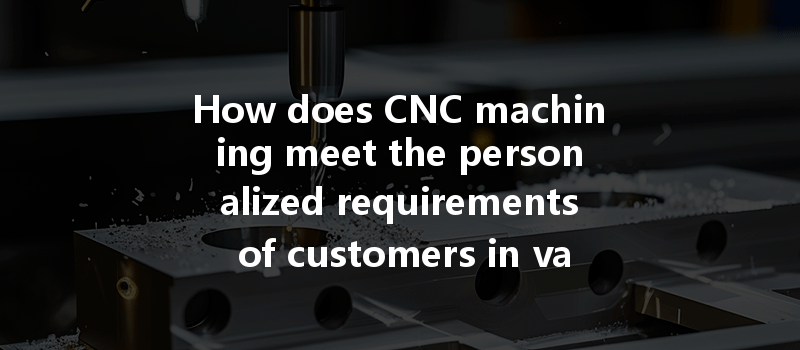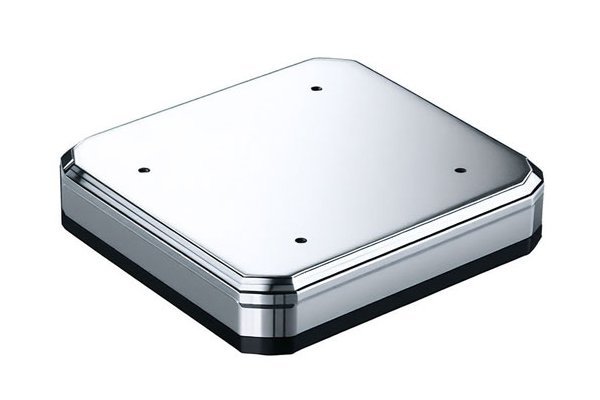Opening
Did you know that 70% of manufacturers believe that offering personalized or customized products has become crucial for staying competitive in today’s market? As customers increasingly demand products tailored to their unique needs, many industries are turning to advanced manufacturing technologies. One such technology that has revolutionized product customization is CNC (Computer Numerical Control) machining. But how exactly does CNC machining cater to diverse personalized requirements? This blog will delve into the intricacies of CNC machining and illustrate how it meets those unique needs across various industries—from aerospace to consumer goods.
The Role of CNC Machining in Personalized Manufacturing
CNC machining is a subtractive manufacturing process that utilizes computer-controlled machinery to carve out precision parts from solid materials. Unlike traditional machining methods, CNC machining allows manufacturers to create highly complex designs with extreme accuracy, making it ideal for customization.
Key Features of CNC Machining
CNC machining can work with a wide array of materials including metals, plastics, and composites. This versatility allows manufacturers to produce parts for different applications while satisfying specific customer requirements.
CNC machines can maintain tight tolerances—some can achieve accuracies within ± 0.001 inches. This level of precision is essential for industries like aerospace and medical, where even the slightest deviation can result in failure or malfunction.
With CNC machining, manufacturers can quickly produce prototypes to test designs and functionalities. This rapid prototyping significantly reduces the time-to-market for new products.
Whether you need one-off custom parts or large batches, CNC machining can easily scale operations to meet the demands, thus accommodating both personalized small orders and high-volume production.
Meeting Customer Requirements: Solutions Through CNC Machining
To effectively address customer-specific needs, CNC machining employs several advanced technologies and practices:
CNC machining allows manufacturers to create unique programs tailored to specific customer requests. Customers can provide designs in formats such as CAD (Computer-Aided Design), which can be directly translated into machine instructions. This level of customization expands the possibilities for product design, allowing for distinct features catered to user preferences.
Each project comes with its own set of requirements concerning material selection. CNC machining offers a broad range of material options—from metals like aluminum and stainless steel to plastics like polycarbonate and nylon. By selecting the right material, manufacturers can meet functional and aesthetic needs.
Specialized tooling is critical for achieving personalized designs. CNC machining employs various tools and techniques, such as multi-axis machining, which allows for intricate cutting and shaping. This capability enables the creation of complex geometries that meet specific customer demands, whether for strength, weight, or aesthetic appeal.

Surface finishes are often a critical element of product design, impacting both functionality and appearance. CNC machining can integrate various finishing techniques like anodizing, plating, and polishing into the production process. This ability to produce visually appealing as well as mechanically sound parts is pivotal for meeting customer expectations.
Meeting personalized requirements also involves stringent quality assurance checks. CNC machining facilities utilize advanced measurement systems like CMM (Coordinate Measuring Machines) to ensure that every produced part adheres to the defined specifications. This quality control fosters customer trust and satisfaction.
Case Studies: Real-World Applications of Personalized CNC Machining
Aerospace Industry
In the aerospace sector, strict regulations demand highly personalized components that also deliver exceptional performance. One notable example is the manufacturing of custom brackets and housings tailored for specific aircraft models. Using CNC machining, manufacturers can produce lightweight yet durable components that help maximize fuel efficiency while ensuring safety.
Medical Devices
The medical industry often requires personalized implants and surgical instruments that must fit individual patients. CNC machining allows for the production of custom orthopedic implants tailored to the anatomical specifics of a patient’s body. With precise machining, these implants can address individual needs, improving surgical outcomes.
Automotive Industry
In the automotive industry, customization ranges from aesthetic modifications to performance-enhancing components. CNC machining allows manufacturers to create personalized parts such as custom wheels, engine components, and interior fixtures designed to meet the unique specifications of car enthusiasts and manufacturers alike.
Sustainability and CNC Machining: A Personalized Touch
As industries move toward sustainable practices, CNC machining offers the perfect blend of customization and eco-friendliness. By reducing waste material through precise cutting and enabling manufacturers to optimize designs for energy efficiency, CNC machining is an environmentally conscious choice for businesses aiming to meet customer requirements.
Challenges and Limitations of CNC Machining in Personalization
While CNC machining offers numerous benefits for customization, certain challenges exist:
CNC machining plays a pivotal role in meeting the personalized requirements of customers across various industries. With its uniquely tailored machine programming, diverse material options, advanced tooling, and rigorous quality assurance, CNC is equipped to produce high-quality, custom parts that meet functional and aesthetic needs.
As industries continue to demand better and more personalized solutions, the significance of CNC machining only grows. Businesses embracing CNC technology will not only satisfy customer needs but can also streamline production and enhance competitiveness. For anyone involved in manufacturing, understanding the capabilities and advantages of CNC machining is essential for navigating the future landscape of personalized production.
So, whether you’re in aerospace, automotive, or any other sector in need of custom solutions, considering CNC machining might just be the key to unlocking your business’s potential.






